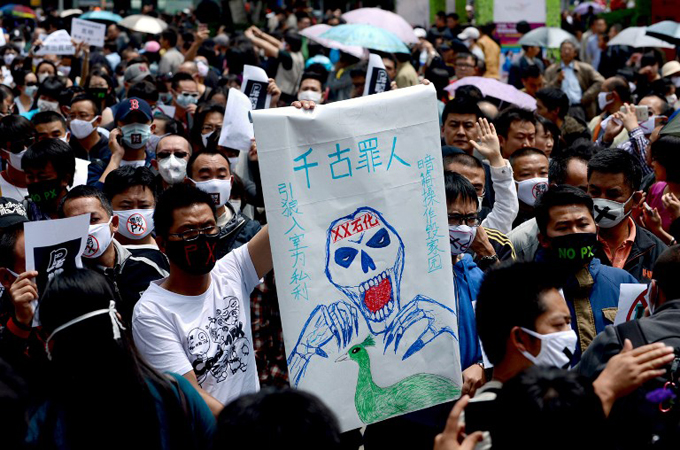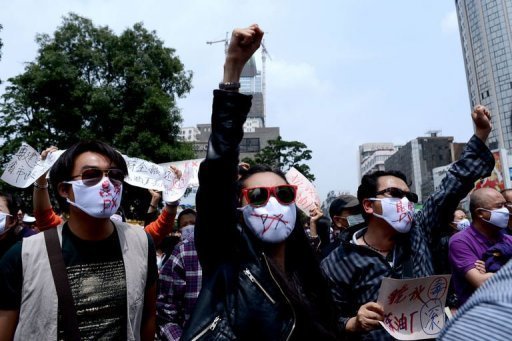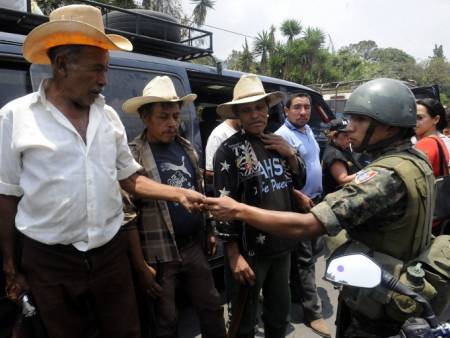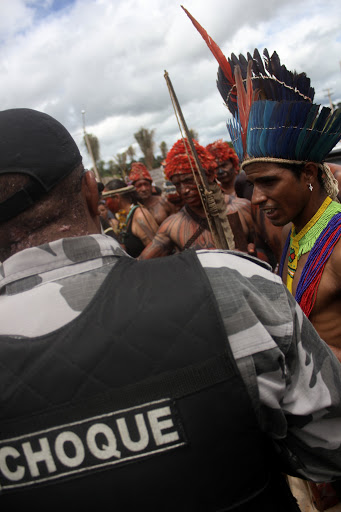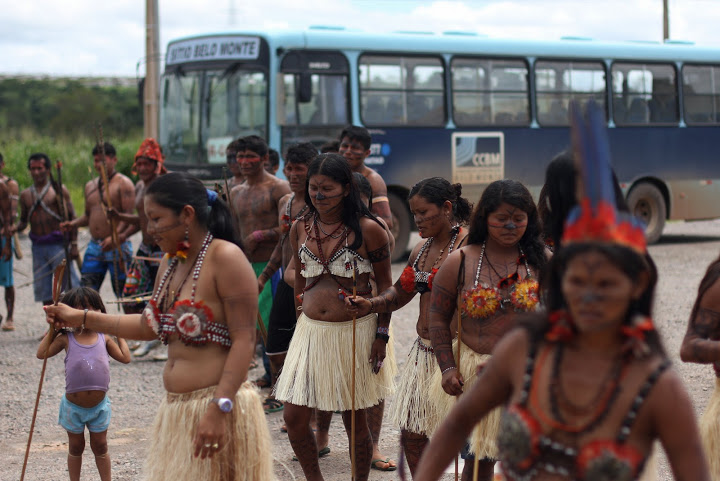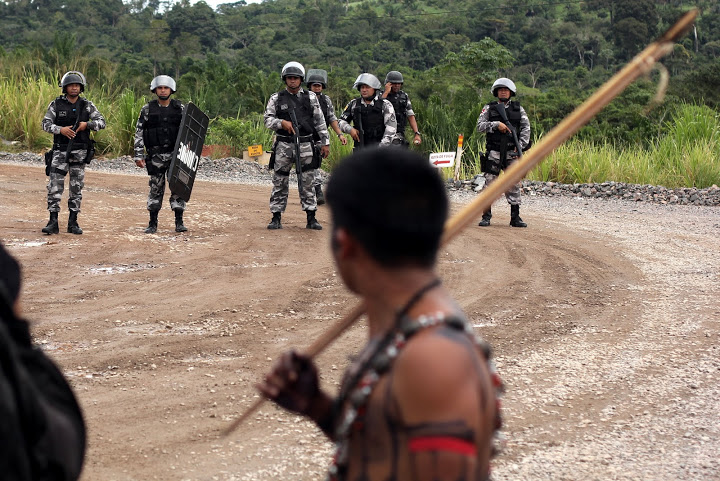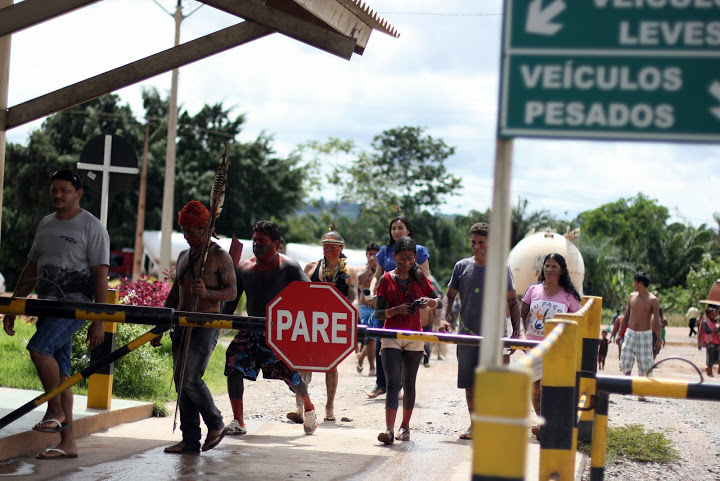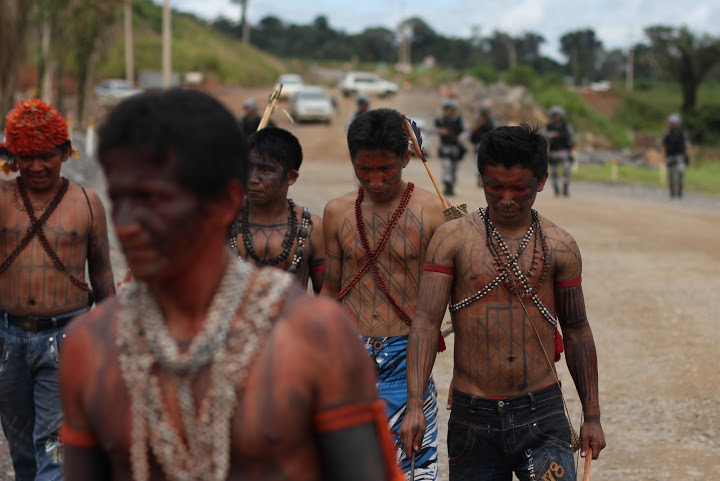
Mining is one of the most viscerally destructive and horrific ways in which the dominant culture—industrial civilization—enacts its violence on the living world. As entirely and unequivocally destructive as this society is, few other industrial activities are as horrifically confronting as mining. Whole landscapes are cleared of life as communities—most often indigenous or poor—are forced from their homes. Mountains level to piles of barren rubble which leach countless poisons, scouring life from whole watersheds. Pits of unimaginable size are carved from the bones of the earth, leaving moonscapes in their wake.
Besides the immediate damage to the land at the site of operations, the destruction extends through the uses its products are put to. In this way, mining is crucial to the continued function of industrial civilization, supplying many of the raw materials that form the material fabric of industrial society. Steel, aluminum, copper, coal, tar sands bitumen, cement; the materials extracted through mining are central components of industrial civilization in an immediate and physical way. They are the building blocks of this society.
Fortunately, as is the way of things, where there is atrocity and brutalization, there is resistance. There has been a lot of militant anti-mining action happening recently; in the last few months alone there have been several inspiring incidents of people taking direct militant action against mining projects and infrastructure.
In February, several dozen masked militants raided the Hellas gold mine in Halkidiki, Greece. They firebombed machinery, vehicles, and offices at the site. The attack followed several years of legal challenges and public demonstrations—none of which succeeded in stopping the mine, which will destroy forests, poison groundwater, and release air pollutants including lead, mercury and arsenic.
When local residents tried to stop the mine through the courts the government ruled against them, claiming that the mine would create jobs. As the Deputy Minister of Energy and Environment Asimakis Papageorgiou said, “We can no longer accept this [area] being left unexploited or barely exploited.”
Statements like these on the part of those in power, while not necessarily surprising, help to make clear the reality we face; the dominant culture requires the rending of the living world into dead commodities. It can’t be persuaded to change, no matter how compassionate and compelling the appeals we make. It can only be forced to change.
More recently, the Powharnal coal mine in Scotland was attacked at the beginning of April. An anonymous communique was released via Indymedia Scotland:
At some point over the past weekend multiple items of plant machinery at an extension to the Powharnal open cast coal site in East Ayrshire were put beyond working use. High value targets including a prime mover and bulldozer were also targeted to cause maximum disruption to workings at the mine.
This action presents yet another hopeful example of militant action targeting extractive projects. This was not a symbolic act of property destruction, but rather one aimed at materially disrupting and stopping destructive activity. More so, the actionist(s) specifically targeted key equipment and infrastructure at the site to maximize the impact of their actions, making good use of effective systems disruption.
A third example comes from Peru, where in mid-April several hundred protestors stormed the Minas Conga gold & copper mine, occupying the site for a short while and burning equipment. Besides the immediate damage done by the arson, the action forced the operating company, Minera Yanacocha, to evacuate personnel and equipment, further disrupting their operations.
This latest protest in April is the latest in a continuous and diverse tapestry of resistance to the Minas Conga mine. Such direct and militant protests and actions last year forced Yanacocha to put most of the mining project on hold, and the strong unyielding opposition has Newmont Mining Corporation (which owns Yanacocha) considering pulling out of the project altogether. This is yet another example of how effective militant action can be in stopping mining and other extractive projects.
Of course there are plenty of aboveground and nonviolent efforts being made to oppose mining projects happening as well, and this isn’t meant to detract from or dismiss their efforts. But the dominant culture needs access to the raw materials that feed the global economy, and in the end it will secure those resources by force, refusing to hear “no!”
Again, this isn’t to say that nonviolent efforts are by any means doomed to failure each and every time we employ them. It is to acknowledge that the entire existence and operation of industrial civilization requires continued access to “raw materials” (otherwise known as natural living communities), and that the courts, regulatory systems, and laws have all been designed to preserve that arrangement. We may win occasional victories here and there, but like a casino, they—the House, the capitalists, the miners, the extractors, etc.— will always come out ahead in the end.
When aboveground & legal efforts to stop mining and other extraction projects fail, as they so often and reliably do, those determined to protect the lands and communities that are their homes turn to other means.
Attacking and destroying the mining infrastructures themselves—the physical machines that are the immediate and direct weapons used to tear up biomes—forces a halt to extraction with an unmatched directness and immediacy. Beyond mining itself, the strategic efficacy of targeting infrastructure—as the foundational supports of any system—has been proven time and again by militaries and resistance movements around the world.
Of course, attacks targeting mines alone will likely never be enough to stop such harmful and destructive processes altogether. That can only happen by dismantling industrial civilization itself. And like anti-mining resistance, bringing down civilization will require underground action— the targeting of key nodes of critical industrial systems through coordinated sabotage.
As civilization continues its incessant death march around the world— tearing apart and destroying ever more of the living world, ever more human and extra-human communities— resistance against it must of necessity become more militant. With so much at stake, those resisters in Greece, Scotland, Peru and elsewhere using militant attacks on industrial infrastructure to defend their lands and communities deserve our undying support. Those of us who value life and justice should not condemn them, but celebrate them— for theirs is precisely the type of action that will be required to stop the murder of the living world.
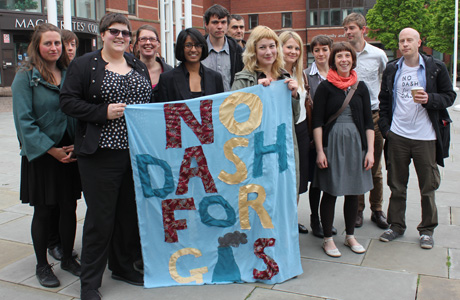 Posted Thu 6th Jun 2013 ‘No Dash for Gas’ campaigners given conditional discharges and community service orders for power station occupation
Posted Thu 6th Jun 2013 ‘No Dash for Gas’ campaigners given conditional discharges and community service orders for power station occupation 




